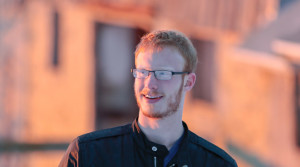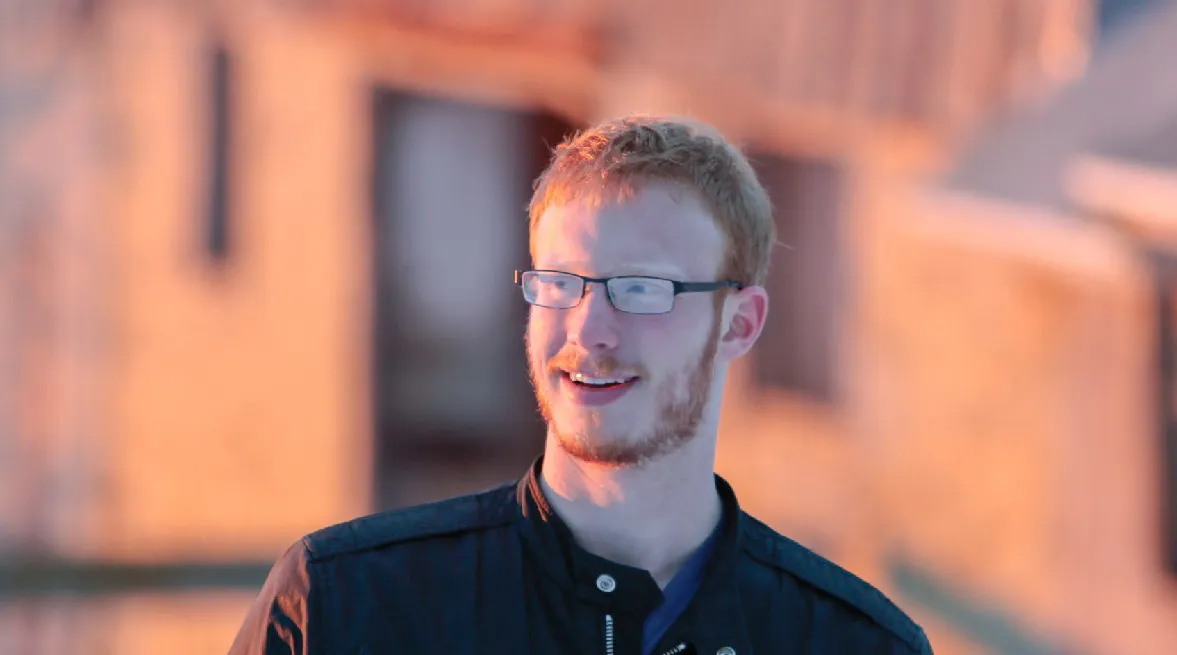Twenty-four-year-old Bob Harlow ’16 is running for Congress in California’s 18th district after having completed his physics degree just last quarter. At Stanford, he played in the orchestra before taking the time to write music and explore the outdoors on his own. He is as much his own person when it comes to politics, denouncing corporate lobbyists and declining to identify on the political spectrum. The Daily sat down with Harlow to find out about him and his political ambitions.

The Stanford Daily (TSD): First things first: What made you want to run at the age of 24?
Bob Harlow (BH): I don’t really think the age has anything to do with it, but I can tell you why I’m running – and that’s because I believe in what America can be. I think that in the past decades, in the middle of the century, we achieved a society that worked for everyone and a system that led to huge economic growth that was felt by every citizen in the country. We’ve turned away from that, but we can get back to it and what it requires is an awakening of what America is and how we can shape policy to return to the successes of the previous century.
TSD: Which specific presidencies do you see as successful?
BH: That would be from [Franklin D. Roosevelt] up through Carter. Reagan is when the country really started to go downhill.
TSD: What are some of the things you hope to do as Congressman?
BH: I have a few particular things in mind. One main thing is the Affordable Care Act. I think the Affordable Care Act took us a step forward in some ways, to make sure people can’t be discriminated against for health insurance based on existing conditions, but American people are getting the short end of the stick… And the reason we don’t [have the public option now] is that the political system is very corrupt and inappropriate lobbying is going on. So I would like to raise $100 billion to create a subsidized public option in the Affordable Care Act.
I would also stand by a 10 percent increase in the tax of Americans making more than $1 million a year in what would result in a highest marginal tax rate of 40 percent for that bracket. In the 1950s under Eisenhower, it was 91 percent. Another thing is to raise $1 billion to send 20,000 students to public colleges and universities with free tuition, room and board.
The third item is to have high-speed rail lines from city centers to parts of the Bay Area and the surrounding area that are currently underdeveloped. In particular, I’m thinking of a train from downtown San Jose to the Central Valley – a 40-mile track, assuming it’s a straight line… It’ll generate lots of development [in the Central Valley], lots of increases in housing supply, and significantly lower prices everywhere.
TSD: Where do you identify on the political spectrum?
BH: I don’t think I exist on the current political spectrum. The one thing that almost everyone in Congress has in common is that their chief loyalty is to the people who back their campaigns. And if you look across everybody, that mostly means wealthy donors. You have an economic system that’s not designed these days to work for the American people.
I don’t think American people want to live in society where the average American can’t get a house right now. Unfortunately, we’re living a society where the real wages haven’t gone up for 40 years.
TSD: How did you engage in politics at Stanford, especially since it wasn’t exactly your field of study?
BH: I didn’t become interested in politics at Stanford. I became interested before that. It’s hard to say why we have the interests we do, some of us just tick in different ways. Policies and tangibly trying to improve how we can promote prosperity and freedom for everyone ticks for me.
I would say my interest grew when I worked for the Obama campaign. I enjoyed talking to people, going door to door, and having a conversation about policy with real people.
TSD: As a Democratic candidate yourself, what do you make of the race for the Democratic nomination?
BH: I like Bernie a lot, I think that his vision for America and the proposal he outlined would be really good, [it would be really good] to head in that direction. I think if it came down to implementing it, we would have to take more incremental steps.
I really don’t know what Hillary Clinton thinks, and I don’t think anyone really does. I think Hillary Clinton will be good for the country – she’ll move us forward.
I think that I feel like I’m more on the same wavelength as Bernie Sanders. I do think that Hillary Clinton is very knowledgeable about policy and she is generally in the right place in the sense of carrying on the legacy of Obama and moving the nation further back towards a place where there is justice for its people.
TSD: What do you plan to do in the longer run?
BH: I plan to run again if I don’t succeed this year. I have some pretty strong interests, and I will definitely pursue some other things career-wise, but I still have my focus on the election two years from now.
Of course, I’d have to support myself during that time, so I’ll do something in that realm. I do compose music too, and every once in a while on Friday, that’s when I’ll sit down in front of a piano and enter that world, and I really treasure that.
TSD: What sort of music would that be?
BH: I write music that is, I think, a pretty solid extension of the symphonic tradition that doesn’t necessarily try to be anything. But it draws on the colors and textures and rhythms from the soundscape of music existing today and synthesizes that into something that continues in the tradition of all these great works for orchestra of the past couple centuries.
Contact Fangzhou Liu at fzliu96 ‘at’ stanford.edu.
